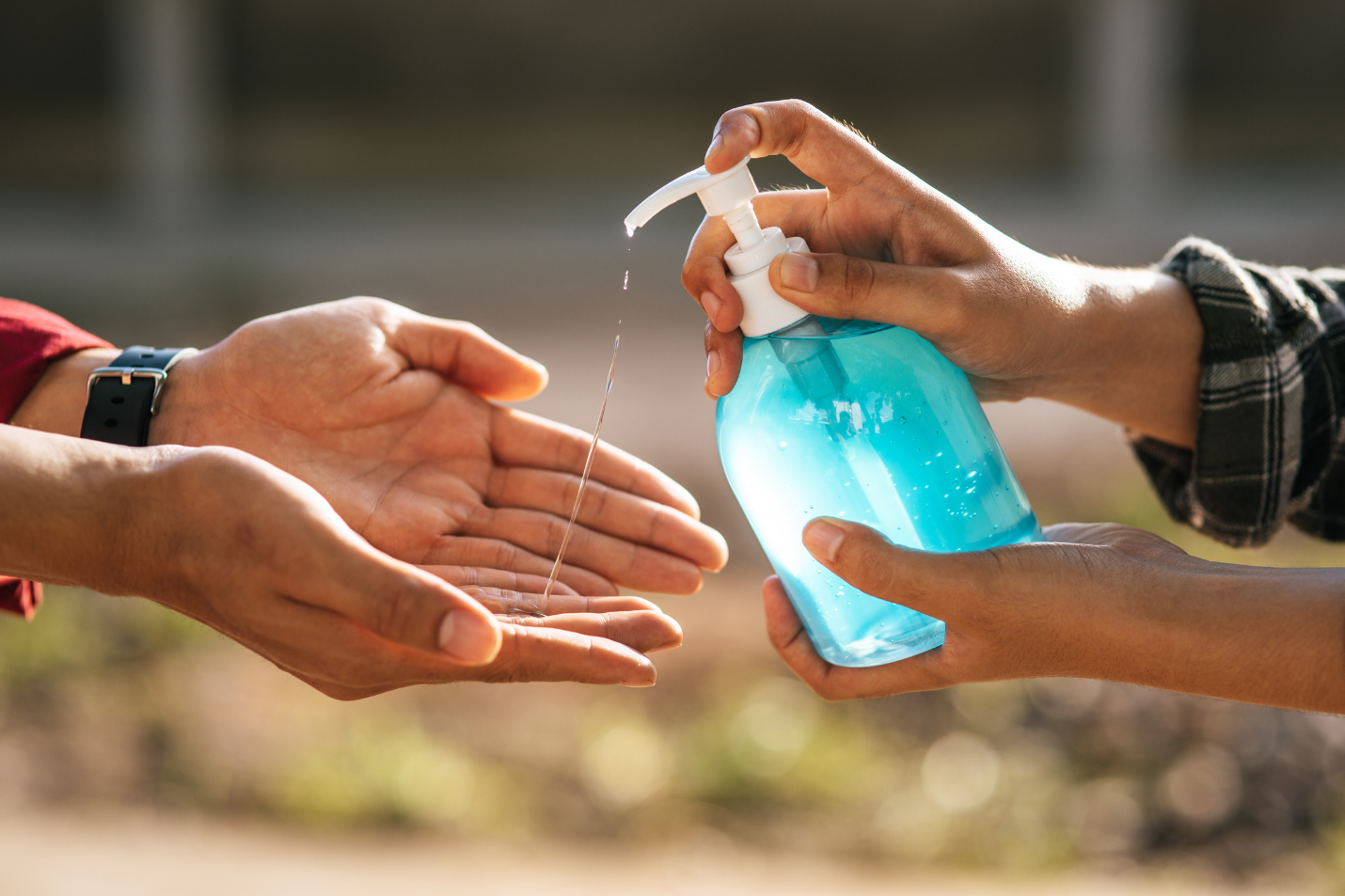Alcohol Sanitizers | Expectation Vs. Reality
With the viruses manifesting in new shapes, forms, and intensities with each new day, the use of hand sanitizers has become an unavoidable reality for many. We discussed 5 common yet uncommon things about hand sanitizers in one of our previous blogs. However, let’s face the fact – the market is currently dominated by alcohol-based sanitizers.
That said, there are many variations of such sanitizers available in the market, and we, apparently the naive customers, buy without getting into many details, and that’s pretty justified! Nonetheless, there are a few myths (or say expectations) regarding any alcohol-based sanitizer that are not always true. Hence, let’s go through some of these and analyze how our expectations are different from reality.
☛Myth: Using an alcohol-based sanitizer frequently is safe and doesn’t harm the skin.
☛Fact: Sustained use of alcohol-based sanitizers over a period of time can cause skin complications, and there have been cases since last year evidencing the same.1 Such usage has resulted in adverse skin effects on people making changes in the skin’s texture. The impact goes from dryness to irritant contact dermatitis (ICD) and rarely allergic contact dermatitis (ACD)1.
☛Myth: Alcohol-based sanitizers are effective on wet or soiled hands.
☛Fact: No, alcohol-based sanitizers are not that effective when applied to wet or dirty hands. It is recommended to wash your hands with soap and water, dry them, and then use hand sanitizers for desired efficacy.
☛Myth: All hand sanitizers are the same
☛Fact: All hand sanitizers ARE NOT the same. Different products have different formulations2 in terms of the composition of ingredients, primarily the content and type of alcohol used. The composition that is effective in its action against pathogens and doesn’t do any damage to the skin should be our choice.
☛Myth: Sanitizers are safe for anyone and everyone
☛Fact: It actually depends on what kind of sanitizer is being talked about. Hand sanitizer is an OTC drug; however, one must be cautious while using an alcohol-based sanitizer3. It is advisable to store such sanitizers out of the direct reach of children and pets. It is also crucial to ensure the sanitizer doesn’t get into your eyes, as it could cause a burning sensation and be damaging. In case this happens mistakenly, immediately rinse your eyes with water. Ingestion of alcohol-based sanitizers in any form must be avoided. Many cases of accidental ingestion and resulting impacts have been reported since last year. Sharing an excerpt from the US FDA’s4 website supporting the same, “During this coronavirus pandemic, poison control centers have had an increase in calls about accidental ingestion of hand sanitizer, so it is important that adults monitor young children’s use.” The consequences include severe injuries, damage to vital organs, and even death.
☛Myth: All hand sanitizers are non-flammable
☛Fact: Alcohol-based sanitizers are flammable and should be kept away from heat and flames. After the use of these sanitizers on hands, make sure the hands are completely dry before performing any activity related to heat, flames, and electricity. These sanitizers have high amounts of ethanol and hydroxypropyl that are highly flammable and can catch fire near a source of ignition. High temperatures also make these sanitizers less effective in terms of sanitizing and disinfecting. It is also, therefore not advisable to use/leave such products inside your vehicles, especially if parked in a hot place.
Some safety concerns were highlighted during testing of the sanitizers by the FDA3, like inappropriate amounts of alcohol, presence of toxic types of alcohol, or misleading claims on the pack. Hence, FDA has issued a do-not-use4 of sanitizers in the public interest. This list is updated regularly, and we can ensure our next buy is a product not present in the list.
Choose Wisely!
Avani Raj Arora
References
1. NCBI – Hidden threat lurking behind the alcohol sanitizers in COVID‐19 outbreak – https://www.ncbi.nlm.nih.gov/pmc/articles/PMC7280687/#dth13627-bibl-0001title
2. Grainger KnowHow – Hand Sanitizer Facts – https://www.grainger.com/know-how/equipment-information/kh-supplylink-debunking-commonhand-sanitizer-myths
3. US Food & Drug Administration – Safety Using Hand Sanitizer – https://www.fda.gov/consumers/consumer-updates/safely-using-hand-sanitizer
4. US Food & Drug Administration – Check FDA’s Do-Not-Use List – https://www.fda.gov/drugs/drug-safety-and-availability/fda-updates-hand-sanitizers-consumers-should-not-use

8 thoughts on “Alcohol Sanitizers | Expectation Vs. Reality”
Hi, I do believe this is an excellent site. I stumbledupon it 😉 I’m going to come back once again since I saved as a favorite it. Money and freedom is the best way to change, may you be rich and continue to help other people.
Thankew 🙂
Way cool! Some extremely valid points! I appreciate you writing this post and the rest of the website is extremely good.
We appreciate you reading and enjoying our content. Thank you!
A motivating discussion is definitely worth comment. I think that you should publish more on this subject matter, it may not be a taboo subject but typically people don’t discuss these issues. To the next! Many thanks!!
Yes! That’s the reason we aim to bust such myths – so many thanks for a comment that motivates us to write more!
Say, you got a nice blog post. Really Great.
I used to be able to find good information from your blog posts.